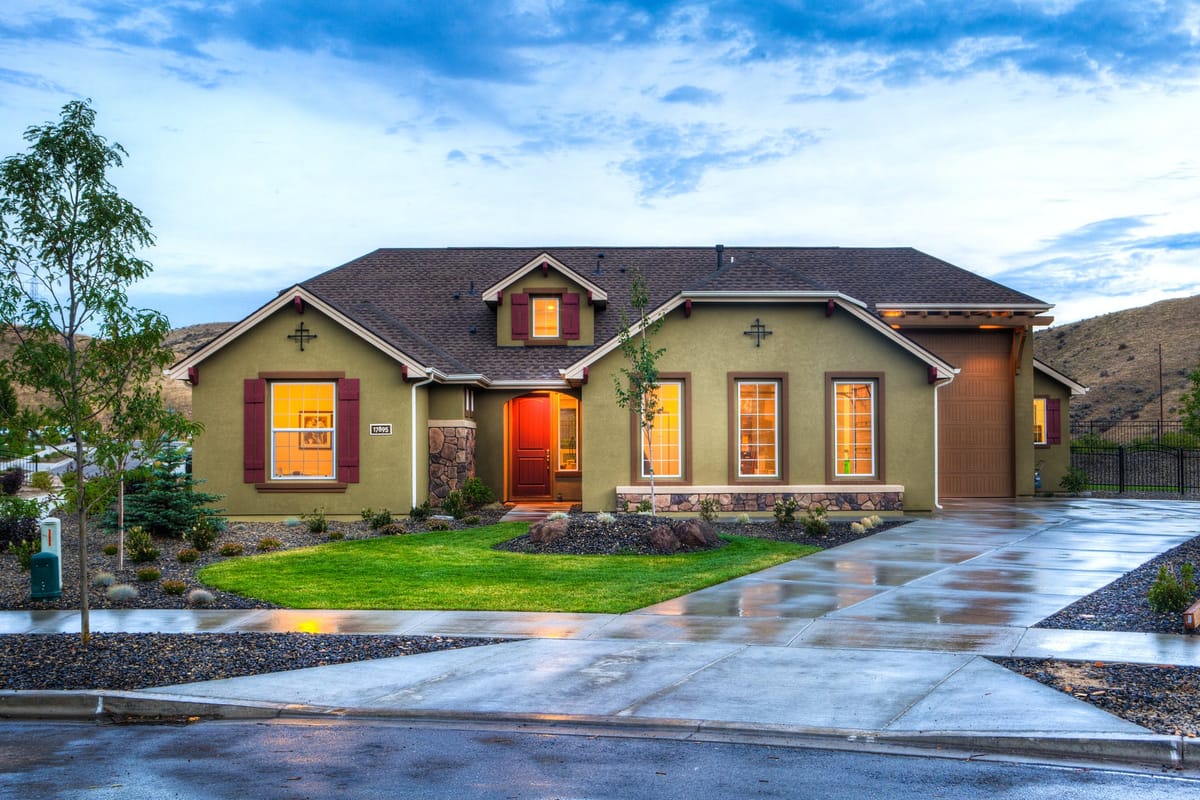Most Real Estate Investing Doesn't Work. Here's Why.

I’m not a fan of the way most people invest in real estate.
Real estate is the unquestioned gold standard of investing. You’ve heard how an uncle's property appreciated by 400% over 25 years, how real estate only goes up, and how billionaires land bank, and therefore you should as well.
Let's see if this belief makes sense.
How do most people invest in real estate?
The way most people invest in real estate goes like this:
- Buy pre-existing real estate, like a condo unit.
- Rent it out just to keep up with maintenance costs.
- Sell the real estate later for its capital gains.
Let's call this "Turnkey" real estate investing. It's much more passive than other methods - no building; no renovations.
Many believe that Turnkey investing works because:
- Real estate can only go up
- The rate of appreciation for real estate can beat most other investments.
These beliefs are downright false.
What’s wrong with Turnkey real estate investing?
1. It relies on the Greater Fool theory
The Greater Fool theory states that when you buy an asset, there will always be a Greater Fool down the road to buy it at a higher price.
Said another way: “I don’t need cash flow - I’ll profit through appreciation!”
When you rely on someone to buy your asset at a higher price, you’re exposing yourself to a massive risk that the Greater Fool just won’t show up.
The best investing is business-like, and businesses are judged based on their cash flows. When we own a great business, we are okay with never selling because we get to pocket the profits.
An investment is an investment is an investment. All investments must be assessed the same way - through their cash flows. Real estate is no exception.
If I can’t make a good return from the rent alone, I won’t invest in it.
You might be thinking: “Real estate is different - it NEVER goes down. There will ALWAYS be a Greater Fool!”
That’s what everyone was saying before the 2008 housing crisis.
2. Real estate doesn’t always go up.
Real estate is more stable than other asset classes. I agree. Real estate is a great tool for maintaining wealth, and it rarely drops in price.
However, people tend to take it too far, concluding that real estate can NEVER go down.
Real estate can and does crash.
In 2008, people were buying houses using loans they couldn’t pay off, pushing prices up.
Investors jumped in, thinking that the trend would never reverse. They didn’t care about the underlying cash flows/rent potential of their investments - they just thought that there will always be a Greater Fool to cause prices to rise.
When the loans defaulted, it triggered a global financial crisis, causing prices to crash.

Always invest with business-like standards. Never rely on the Greater Fool theory.
Events like these are relatively rare, though. Surely, real estate makes a ton of money under normal circumstances… right?
3. When Turnkey real estate does go up, it’s average at best.
“Our house started off costing 50 million pesos, and now it’s worth 200 million pesos!"
You’ve probably heard these stories and thought: “Wow, that’s a lot of profit!"
However, investing isn't about flat numbers. You must instead focus on the annual percentage return on invested capital.
If our example above (50 million —> 200 million) happened over 20 years, do you know how much the annual rate of return is?
It’s 7.18% per year. Pretty close to average.
Not bad, but not as massive as you’d think, considering that you can get an 8% long-term return from a stock market index fund with fewer taxes, transaction fees, and management efforts.
Aside from the fees, my main problem with real estate returns is that most of the time, this is as good as it gets. A long-term return of 8% for Turnkey real estate is already extremely high and unlikely.
Contrary to popular belief, real estate does not have the highest potential return among passive investments. Most profits in real estate are made through active methods that require building, rehabilitation, and other efforts.
4. Real estate is expensive, causing liquidity, concentration, and default risk.
My last problem with real estate is its price point.
Because real estate costs a lot of money, it can be difficult to find buyers at market prices. When you’re in a cash crunch, this liquidity risk forces you to sell at lower prices.
When you have less capital, investing in real estate can also mean having to put all your money in one property. When all your eggs are in one basket, you’re exposed to concentration risk. Imagine if an earthquake destroyed your only property.
Some people reduce concentration risk by purchasing properties using loans or leverage. This then exposes them to the risk of losing the property if they default on their loans.
What does a great investment look like?
Now that you’ve seen the bad side of the usual Turnkey real estate investment, let’s cover what a great investment looks like.
1. A great investment is based on cash flows; not Greater Fools.
Investments must not rely on appreciation. They must rely on the cash flows generated from end-consumption.
If it’s a business, there must be customers who buy and use the products. If it’s real estate, you need renters that will give an acceptable return.
Hype around investment assets can come and go, but end-users paying for actual consumption - paying for food to eat, cars to drive, and real estate to rent - are here to stay. Therefore, we must use the latter to judge our investments.
If you can't trace how you'll make money to actual consumption, you're relying on Greater Fools to make money.
2. A great investment is purchased at a discount to business value.
It helps to know the fair value of your investment. The best investments are purchased below this fair value, giving us a margin of safety in case something bad happens to our investment.
There ARE cheap real estate opportunities. However, you'll need to put in the effort to find distressed sellers or foreclosures - a far cry from the passive Turnkey real estate investing most people are familiar with.
Personally, I'd rather sift through unpopular companies in the stock market to find discounted investments.
An investment is an investment, no matter the asset class.
Whether it's stocks, bonds, a business, or real estate, an investment is an investment, and all investments must be judged by their cash flows.
Conventional wisdom has fooled you into thinking that Turnkey real estate is special - that it doesn't have to follow the rules that other investments are bound to.
People will say that real estate only goes up, that it's the safest way to invest; that it's impossible for it to fail. Therefore, they conclude, you can just buy any decent real estate and you'll be guaranteed to make a huge profit.
Time and time again, history has shown us that this is not the case. Real estate does go down at times, and the Turnkey method gives anemic results at best.
Each investment must be assessed on an individual basis. An investment must stand on its own cash flows without relying on a Greater Fool to buy you out.
Whether it's a franchise, a bond, or real estate, applying this same business-like standard can only do you good.



